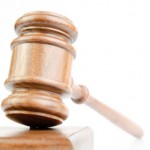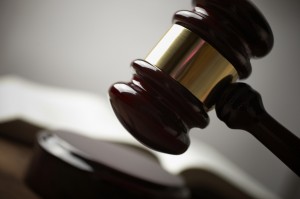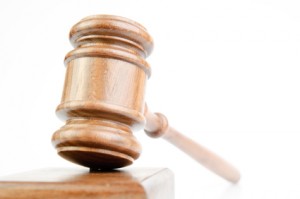 A recent ruling by the Prince William County Circuit Court declared that interviews by carriers with their insured regarding an auto accident fall within the shield provided by the “work product” doctrine of supreme Court Rule 4:1(b)(3). The Virginia Court of Appeals upheld the decision. Plaintiff’s motion to compel was denied for several reasons.
A recent ruling by the Prince William County Circuit Court declared that interviews by carriers with their insured regarding an auto accident fall within the shield provided by the “work product” doctrine of supreme Court Rule 4:1(b)(3). The Virginia Court of Appeals upheld the decision. Plaintiff’s motion to compel was denied for several reasons.
First, the court stated that the “work product” doctrine “protect[s] not only materials gathered by or for counsel in anticipation of litigation, but materials gathered by or for others, including the liability insurance carrier.” Furthermore, the court cited Veney v. Duke for the proposition that discussions of third party coverage is protected by the “work product” doctrine, and extended that logic to discussions of first party coverage. Finally, since the case at bar involved an insured who plead guilty to a traffic infraction and contested liability in a subsequent civil case, the court stated that the affirmative duty of defense counsel to prevent his client from testifying to a known falsehoods “offers sufficient protections.”
This ruling has important ramifications for Virginia subrogation attorneys, insurance defense firms and personal injury attorneys. For the Virginia subrogation attorney, this ruling confirms an intuition long held, that those conversations by insurance adjusters regarding third party coverage should be protected under Virginia’s “work product” doctrine. Insurance defense firms facing Virginia subrogation firms should expect to be stymied by this latest ruling when issuing subpoenas duces tecums in the future.
Justin McLeod
New VA Evidence Rule 2:411 Affects Litigation
 There is a long-standing doctrine at common law known as the “collateral source” rule. Virginia codified this in VA Code § 8.01-35, which states:
There is a long-standing doctrine at common law known as the “collateral source” rule. Virginia codified this in VA Code § 8.01-35, which states:
In any suit brought for personal injury or death, provable damages for loss of income due to such injury or death shall not be diminished because of reimbursement of income to the plaintiff … from any other source, nor shall the fact of any such reimbursement be admitted into evidence.
The collateral source doctrine arose to bar defense attorneys from raising the fact at trial that plaintiffs were compensated for their injuries or lost wages arising out of an injury. The public policy reason being that to do so could sway the jury and, in effect, punish the victim for carrying insurance and observing their social responsibility. The vast majority of the time the collateral source doctrine arises in personal injury actions or medical malpractice litigation. So how does the collateral source rule affect the Virginia subrogation attorney?
In the typical subrogation case involving an automobile accident the policyholder is the witness for the plaintiff (the insurance company) and the defendant is uninsured and testifying on their own behalf. The policyholder has been compensated for their loss and the vast majority of the time has nothing to gain or lose by the outcome of the case. They are merely acting as a witness. However, for the defendant the case can have major consequences, both financial and personal. Therefore, sometimes in a “he said, she said” case it can be prudent to point out to the trier of fact that the plaintiff’s witness has nothing to gain by their testimony, while the defendant has something to lose, sometimes a lot.
This can sometimes run into an objection by defense counsel if the opposing party is represented, citing the collateral source rule, or the judge, sua sponte , will express misgivings about bringing up the fact that one witness was compensated under an insurance policy. There is a strong argument that under current case law the collateral source doctrine does not apply to most property damage cases since the statute expressly refers to “suit brought for personal injury or death”, but there is a common misconception that the common law and the statute act as an absolute bar.
The new Virginia Rules of Evidence put any confusion to rest, however, in the text of Rule 2:411 “Insurance”:
Evidence that a person was or was not insured is not admissible on the question whether the person acted negligently or otherwise wrongfully, and not admissible on the issue of damages. But exclusion of evidence of insurance is not required when offered for another purpose, such as proof of agency, ownership, or control, or bias or prejudice of a witness.
When read in conjunction with VA Code § 8.01-35 it is clear that evidence of an insurance policy can be admitted into evidence to demonstrate the objectivity or bias of a witness. Therefore, the Virginia subrogation attorney can point out to the trier of fact that the policyholder has nothing to lose or gain by the outcome of litigation. Most of the time judges will make this connection on their own, but in close cases it can help to tip the scales to that crucial 51% needed for the “preponderance of the evidence” standard required.
We will continue to analyze the new Virginia Rules of Evidence to evaluate their impact upon subrogation litigation in Virginia, stay tuned.
Using Judicial Records as Evidence
 Subrogation attorneys dealing with a high volume of automobile cases often have to litigate cases “on the fly.” Policyholders can be tough to reach and often all the attorney has going into trial is the adjuster’s notes, which range in depth and quality of description. However, occasionally the job is made easier by a traffic case having arisen out of the same incident. The internet provides the Virginia subrogation attorney with a powerful tool: online case records search. A quick search before trial will reveal whether the defendant plead guilty, or was found guilty, of a traffic offense. So what can the Virginia subrogation attorney do with the judgment? VA Code §8.01-389(A1) allows the introduction of said judgment as prima facie evidence. The statute requires the records be “authenticated” by the clerk of the court where it was preserved.
Subrogation attorneys dealing with a high volume of automobile cases often have to litigate cases “on the fly.” Policyholders can be tough to reach and often all the attorney has going into trial is the adjuster’s notes, which range in depth and quality of description. However, occasionally the job is made easier by a traffic case having arisen out of the same incident. The internet provides the Virginia subrogation attorney with a powerful tool: online case records search. A quick search before trial will reveal whether the defendant plead guilty, or was found guilty, of a traffic offense. So what can the Virginia subrogation attorney do with the judgment? VA Code §8.01-389(A1) allows the introduction of said judgment as prima facie evidence. The statute requires the records be “authenticated” by the clerk of the court where it was preserved.
Practically, in most instances if the trial time gives the attorney some time to get into the clerk’s office before court then getting to court 30 minutes early or more will allow time to get a certified copy from the clerk. Most of the time the citation or case was litigated in the traffic court of the same jurisdiction in which the present civil case is being tried. Obviously, if it is a different court, or if trial time is first thing in the morning, counsel may have to go by court before he trial on another day or request it by mail if the clerk’s office obliges.
Virginia Subrogation Statute
Subject of the Subrogation Statute
One of the few codified mentions of subrogation in Virginia deals with medical services rendered arising out of negligence. VA Code § 8.01-66.4 allows for subrogation where “any person, firm or corporation who may pay the charges for which a lien is provided in §8.01-66.2 shall be subrogated to such lien.” The lien in question is one automatically created by Virginia law. The lien arises when one receives medical care arising from a negligent act. The provider of the services has a lien on the injured person’s claim against the negligent person or entity.
Covered Entities
VA Code § 8.01-66.2 includes the following:
- hospital, public or private
- nursing home
- physician
- registered nurse
- registered physical therapist in this Commonwealth
- receives medicine from a pharmacy
- ambulance service
Limitations on Recovery
Covered entities are limited to the ” just and reasonable charge for the service rendered, but not exceeding $2,500 in the case of a hospital or nursing home, $750 for each physician, nurse, physical therapist, or pharmacy, and $200 for each ambulance service.”
TX Shines Light for VA on Equitable Subrogation Principles
 The Texas Supreme Court overturned the Austin Court of Appeals in Texas Health Ins. Risk Pool v. Sigmundik, 315 S.W.3d 12, 14 (Tex.2010) that ruled the “made whole” doctrine was inapplicable in a subrogation action where a contract clearly lays out a right to subrogation. This reversal is in line with a previous case, Fortis Benefits v. Cantu, 234 S.W.3d 642 (Tex.2007), standing for the same proposition.
The Texas Supreme Court overturned the Austin Court of Appeals in Texas Health Ins. Risk Pool v. Sigmundik, 315 S.W.3d 12, 14 (Tex.2010) that ruled the “made whole” doctrine was inapplicable in a subrogation action where a contract clearly lays out a right to subrogation. This reversal is in line with a previous case, Fortis Benefits v. Cantu, 234 S.W.3d 642 (Tex.2007), standing for the same proposition.
Despite this clear line of case law, the Austin Court of Appeals erred on the side of the “little guy” in the situation where a trial court attempted to allocate the entirety of an $800,000.00 settlement in a negligence suit to the family of an individual who was injured in an oilfield explosion and spent 52 days in the hospital before eventually succumbing to his extensive injuries. When the insurance company intervened in the action and asserted a $330,000 lien on any recovery obtained by the family the trial court ruled that where subrogation claims work an injustice they should not be allowed. The court cited the financial hardship of the family and the solid financial position of the insurance company. The Austin Court of Appeals concurred with the trial court’s reasoning and affirmed. Ultimately, the Supreme Court overturned the ruling and cited its own cases to the contrary.
These cases are instructive for the Virginia subrogation counsel facing sympathetic trial judges who may be tempted to ignore the plain subrogation language in an insurance contract to “balance the equities.” As the Texas Supreme Court affirms, contracts are still held to be almost sacrosanct, no matter the outcome. This applies for subrogation, just like any other form of contractual agreement.
Contractual vs. Equitable Subrogation in Virginia
 Equitable Subrogation in Virginia
Equitable Subrogation in Virginia
Subrogation is the legal process in which an insurer can step into the shoes of their policyholder to recover damages from the third party responsible for the loss. Equitable subrogation is based on equity, or fairness, as defined by the Virginia Supreme Court in Xl Specialty Ins. Co. v. Dept. of Transp., 611 S.E.2d 356, 269 Va. 362 (Va, 2005):
Equitable subrogation is subrogation that arises by operation of law. It is not based on contract or privity of parties, but is “purely equitable in nature, dependent on the facts and circumstances of each particular case.” Centreville Car Care, Inc. v. North Am. Mortgage, 263 Va. 339, 345, 559 S.E.2d 870, 872 (2002) (quoting Federal Land Bank of Baltimore v. Joynes,179 Va. 394, 402, 18 S.E.2d 917, 920 (1942)). When a principal defaults on a contract guaranteed by a performance or payment bond and the surety performs on the bond, principles of surety law and the doctrine of equitable subrogation impose certain rights and duties running between the surety, principal, and obligor, and allow the surety to enforce such rights and duties. See Dickenson v. Charles, 173 Va. 393, 400, 4 S.E.2d 351, 353 (1939) (quoting Kendrick v. Forney, 63 Va. (22 Gratt.) 748, 749-50 (1872)); Fulkerson v. Taylor, 100 Va. 426, 432,41 S.E. 863, 865 (1902); Restatement (Third) of Suretyship and Guaranty § 27 (1996).
Equitable subrogation arises from the common law and can work against the insurer conducting business in Virginia. For instance, where the Virginia policyholder has uninsured losses and recovers a judgment against the tortfeasor that does not equal the amount of total loss suffered by the insured, then the insurer cannot recover against the third party.
Contractual Subrogation in Virginia
The key difference in Virginia between equitable subrogation and contractual subrogation is that judges ultimately decide the outcome of an equitable subrogation action, while the language and intent of the parties control the outcome in a contractual subrogation case. It is imperative for the parties to a subrogation case to understand the language of the insurance contract and how it affects subrogation rights. For instance, insurance contracts can be written to give the insurer first right of subrogation, which cuts off most equitable subrogation worries. Virginia subrogation attorneys would be wise to discuss contract provisions with clients operating in Virginia.
Editor:
Justin McLeod, Esq.
Associate
Chaplin & Gonet
New Subrogation Arbitration Rules
 Important changes have been implemented by Arbitration Forums, Inc. that affect subrogation practitioners appearing in the Property Arbitration Forum. These rules came into effect last month, March 1, 2012, and one of the most profound changes manifests itself in Rule 3-7, stating:
Important changes have been implemented by Arbitration Forums, Inc. that affect subrogation practitioners appearing in the Property Arbitration Forum. These rules came into effect last month, March 1, 2012, and one of the most profound changes manifests itself in Rule 3-7, stating:
“All written contentions and supporting evidence submitted to the Forum are all that is to be considered by a Property Arbitration arbitrator, and that a party attending the hearing is not allowed to verbally present its case or offer any argument that is not included within their written contentions.”
Rule 3-7(a) goes on to state that practitioners may clarify or amplify points made in written contentions, or submit additional evidence, at the arbitrator’s request. No arguments may be presented, and only questions posed by the arbitrator may be answered. Finally, Rule 3-7 has shortened the time allowed to submit evidence for arbitration, now all evidence must be received by the Materials Due Date, instead of the arbitration hearing date, as was previously the case.
This represents a major strategic shift for the Virginia subrogation attorney entering a arbitration with an opposing insurance company. Now, practitioners must be ever closer attention to the deadlines handed down by arbitrators to ensure all relevant evidence has been submitted. Furthermore, practitioners must ensure that any emotional impact or consequential damages are adequately represented in the written contentions and evidence. No longer can Virginia subrogation counsel rely on verbal arguments to elucidate for the arbitrator how the written evidence impacted the claimant.
For more on Virginia subrogation visit: https://www.chaplingonet.com
